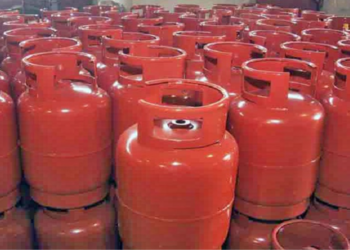The contribution of the manufacturing sector to Nigeria’s GDP in the fourth quarter of 2023 dropped from 8.40%, as recorded in the corresponding period of the previous year, to 8.23%, according to the GDP report for Q4 published by the NBS.
On a quarter-on-quarter basis, the sector’s contribution to GDP dropped by 0.19%, from 8.42% to the current figure.
The manufacturing sector’s Q4 2023 Real GDP growth stood at a 1.38% year-on-year increase, representing a slight decline from 2022 but an improvement from the previous quarter. Quarter-on-quarter growth stood at 9.54%.
Recommended reading: Contribution of manufacturing sector to GDP drops to 8.42% in Q3
Nominal GDP
The Manufacturing sector experienced a notable increase in Nominal GDP growth in the fourth quarter of 2023, reaching 38.06% on a year-on-year basis.
This marked a significant leap of 29.20 percentage points from the 8.86% growth observed in the same period of 2022, and a modest improvement of 1.47 percentage points over the previous quarter’s growth rate of 36.59%.
Additionally, the sector saw a quarter-on-quarter growth of 7.70% during the final quarter of the year.
Year-on-year growth
Looking at the sector’s performance throughout 2023, there was a remarkable annual growth rate of 30.93%, a stark contrast to the 6.93% growth rate in 2022.
The Manufacturing sector’s contribution to the Nominal GDP in Q4 2023 was 16.04%, which represents an increase from the 13.49% contribution during the same quarter in 2022, though it slightly declined from the 16.18% recorded in the third quarter of 2023.
This data underscores the Manufacturing sector’s significant and growing impact on the overall economy.
Recommended reading: FDI to manufacturing sector drops by 53.80% to $279.51 million in Q3
What you should know
The Manufacturing sector encompasses industries involved in cement production, beverages, oil refining, food processing, tobacco, textiles, rubber processing, footwear manufacturing, paper production, and the creation of chemicals and pharmaceuticals.
- The decline in the Manufacturing sector’s contribution to the real GDP this quarter was anticipated, given the challenging macroeconomic conditions it faced. Elevated energy costs, significant exchange rate fluctuations, increased interest rates, and the rising cost of raw material imports forced many companies to scale back production and endure narrower profit margins.
- Moreover, manufacturers have consistently urged the Federal Government to tackle persistent issues such as multiple taxation, the current monetary policy stance, and the energy sector’s inefficiencies.























